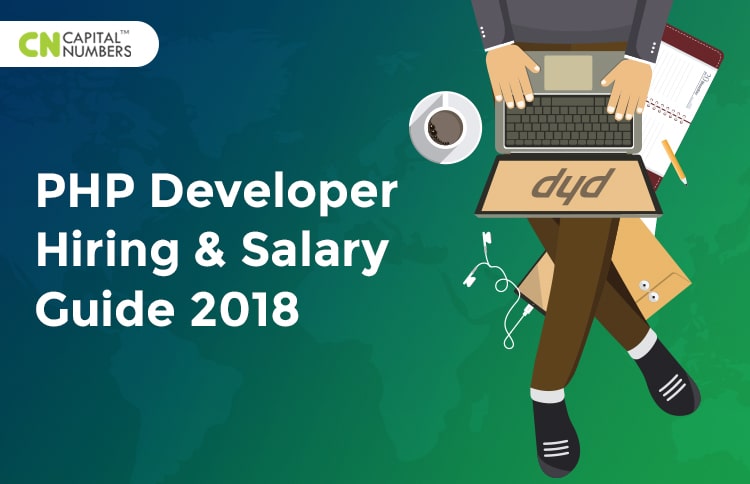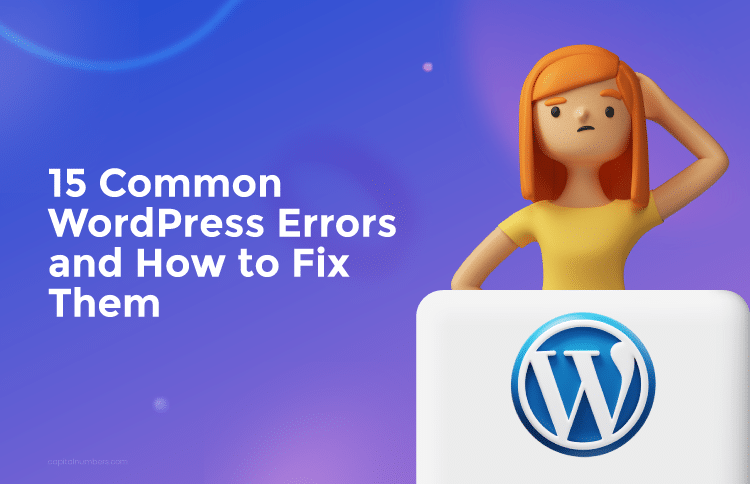Hiring a PHP Developer? Read This First.
Table of Contents
Why the Necessary Task of Hiring a Developer is Less Complex, and Less Costly, Than You Might Think
Why Do I Need This Guide?
Can’t I just go on a freelancing site and post a job offer?
No. Don’t do that.
Hiring a web developer is an exercise in careful selection and trust. In fact, it may be one of the most important and lucrative business decisions you ever make. A good developer will create the online face of your brand, help you reach help to reach your target customers, and make sure the user experience is flawless.
The tech space is always evolving. Skills that are in demand now can become obsolete in a couple of years. So you want to make sure your developer will continue to learn new skills and technologies and stay on top of changes in the industry. In short, your developer should not only possess the requisite talents, but also be able to thrive in a world of constant change.
That’s why hiring off of a freelance platform isn’t always a good idea — unless the developer can prove that they’ve been able to keep clients happy for several years even in a changing industry.
This guide will help you make offers that attract even the best developers; and it will tell you where to find them. Keep reading, and you could start the hiring process tomorrow and be assured of quality.
Why PHP?
We’re going to focus specifically on PHP developers, because of the enormous industry growth in this language. In the right hands, PHP a powerful and flexible language you can use to build dynamic and complex web applications, quickly build minimum viable products to quickly get a project off the ground, and work on every single web hosting service.
PHP has undergone vast improvements in just a short period of time, and hiring a PHP developer also lets you effortlessly build and maintain enterprise-level products. You’ll get increased functionality for simple web presences and flexibility across all your web development. You’ll also be able to utilize better functionality across all of your CMS, including WordPress, Drupal, and Magento.
Vast improvements to PHP have made the community very excited about the future; and you can do all of this at a generally lower cost than it would be to hire a Java or .NET developer.
If you’re doing, or plan on doing, any of this cool stuff in the future, you’re either going to want to
1) Learn PHP and do all the PHP work yourself, or
2) Hire a PHP developer.
Like most of us, you probably don’t want to put your business on pause and spend the 100 – hour weeks becoming an expert in and applying this language.
So hiring a developer is the right choice…but there are so many PHP developers. How do you pick one that is quality enough to keep up with your needs, but also affordable enough to keep you on-budget?
How Much Experience Should My Developer Have?
“As much as possible, obviously!”
Maybe… but hold on for a second. Experienced web developers come with high salaries.
You don’t want to get a 20+ years veteran with a six-figure salary if you just have a few tweaks to make to your CMS and can only afford to pay them part time. On the other hand, if you’re the owner or manager of an enterprise startup, then you should be on the lookout for a full-stack developer with experience— meaning that you’ll be paying a premium.
A very effective way to figure out what kind of experience you’ll require from your developer is to simply make a sheet of all duties they would be performing on a day to day basis. Include a description of how these tasks would help contribute to the company success.
If the list is overwhelming, then you might want to invest in a more experienced developer. On the other hand, if it actually turns out to be a short list, then you would be justified to get a mid-tier developer with only a few years of experience.
Where Can I Find Them?
Outsourcing and working remotely give a greater sense of freedom to you and your employees.
Developers of all skill levels can be found all over the world.
Top-tier developers who command the largest salary are only located in a small section of the world; mostly Western Europe, parts of Canada, and the coastal United States.
But there’s good news. PHP developers are not only willing to work remotely, but they actually want to. So it’s quick and easy to hire a developer from India, Ukraine, or China for much less money than you would spend on a US developer.
The other good news is this: although western developers command high-end salaries, often just out of school, that isn’t always a guarantee of quality.
The demand for developers is great in these countries, so developers are getting snatched up as soon as they graduate. Demand raises prices, so in the western countries, prices are actually inflated for developers who are no better than a top-tier developer in India.
What does that mean for you? Well, it means you’re in luck. Because I’m going to give you some strategies for hiring top-tier developers before other companies can get to them; and further on down, I’m going to show you how to attract a developer that will keep you under budget and get the job done.
What Platforms Make Use of PHP?
PHP really shines in the task of server-side scripting. These scripts interact with back-end databases and process information from the server to access the database. If you run a CMS, for example, you’ll probably have a demand for server-side scripting. Are you using any of the below CMS for your business?
WordPress
WordPress started small. In, 2003 it boasted only a single bit of code to enhance typography and had only a handful of users. Fast forward to now, and it’s the largest self-hosted blogging platform in the world. Millions of websites use WordPress, and you might be one of them.
This particular platform is written using MySQL and PHP. So if the majority of your web presence is based on WordPress, then a good PHP developer will not only help keep you updated and running smoothly, but will also keep you up to date with industry standards.
WordPress is completely customizable and can be used for almost anything. A good PHP developer will help you unlock some of the potential in this CMS that non-professionals might not see.
Drupal
Similar to WordPress, Drupal is a popular and widely-used CMS. Its users enjoy easy content authoring, reliable performance, and excellent security. The name Drupal is almost synonymous with flexibility and modularity, and users enjoy the dynamic web experiences that this CMS offers.
Like WordPress, Drupal is built using PHP to supply the logic while MySQL provides the database.
To run effectively, Drupal requires that the PHP is up to date, and your developer should be able to take care of this. Your developer will also know how to extend Drupal’s functionality with modules and bundles to get you the best performance possible.
When the time comes to scale up, your developer will also be able to perform this service for you.
Joomla
Joomla is the leading information processing system software package today. It’s is available for free, simple to install and easy to use.
However, most casual developers and web owners are simply not fluent in the PHP with which Joomla is written. To create and customize Joomla templates, some degree of expertise in PHP is needed. This is where your developer will really shine.
Joomla can be customized for various industries because of its practicality and versatility, but in order to get the most out of it and keep it up and running with constant updates, you’ll need to bring on a good PHP developer.
Of course, these are not the only platforms you might be using. PHP is also useful for others, such as Silverstripe, ModX, Concrete5, and more.
What Can I Expect My Developer To Do?
The biggest challenges that web developers face daily can be grouped into three categories, but each of these categories is broad and encompasses various tasks. PHP especially is a versatile language that can be used for various tasks.
Your PHP developer may be responsible for both server-side logic and front-end logic. Ever interacted with a really dynamic and interesting UI? Chances are, there was a PHP developer working on it. They typically work on implementing the visual elements that the users see and interact with in a web application, as well as the web services and APIs powering the front-end.
It’s also very common that you would want the developer to specialize in either front end or the backend. It’s important to craft a job description accordingly (more on that in a minute). It is very common for people to actually look for PHP developers when then need back end work to be done.
Typically, a PHP developer’s primary focus will be on development of all server-side logic, definition and maintenance of the database, and ensuring high performance and responsiveness to requests from the front-end.
If you have specific requirements around speed, scalability, data protection, security or accessibility, then its critical to make it a part of your job description and hire developers who have previous experience in doing such tasks.
What Do They Want From Me?
Salary is no longer the only factor. Knowing what developers look for in job opportunities will make you stand out from the competition. Simply having a good idea of what developers want from their employers will help you to recruit them before your competition does.
Clear Job Descriptions
While this seems like a no-brainer, developers like clear, precise requirements. Many of them might have had bad experience with employers who had no idea what to realistically expect from their developers. A job description that is either a vague messy, or a long list of badly-researched tasks can be off-putting. To a typical developer, it can signal that you have unrealistic expectations, or don’t know enough about the role. They might prefer to go somewhere else.
Support Experimentation and Failure
Everyone dreads working on a company that has no room for failure. It’s stifling, it’s demotivating, and its a very stressful working environment. PHP developers want to be creative in their job and want the freedom to try new ideas, libraries, frameworks and CMS.
Obviously, you don’t want to be a guinea pig and want to stick with the “true and tested” methods. But as we mentioned before, the tech world is constantly evolving. It’s best to strike a balance between rapid experimentation and progress, and utilizing proven methods. You developer will thrive best in a culture that supports developers when they fail and also celebrates when they succeed.
The Ability to Work Remotely
We’ve already mentioned this, but it bears repeating, because it opens up so many opportunities for both you and the developer.
99% of the time, developers can do high quality work from several countries away, and the most inconvenient part of this is simply figuring out the best time to get on a Skype or Zoom call. Acknowledging this will allow you to hire A-list developers even if there are none in your location.
Agile Development Best Practices
Nowadays, it seems that everyone CLAIMS to be applying agile-development best practices, when in fact only a few are applying them fully. Most teams pick up a few habits and get into a routine of “good enough.” Are you doing sprint and release planning? Measuring project velocity? Available communication? What does your testing look like?
These are just a few things that will help a developer feel as though they are part of a good, powerful team with lots of room for growth. Remember: high-end developers can go anywhere, so you have a better chance of attracting them if you create an environment where they can thrive.
Where Can I go to Find out More?
Because nobody wants to read a 5,000 word blog post, I’ve put together a nifty PHP developer hiring guide. It’s completely free and there’s no obligation if you just want to pick it up to browse. And it includes some of the answers to the questions I didn’t get around to answering. Questions like:
- How much is the average cost of hiring a PHP developer in my country?
- Am using the latest PHP Framework? If not, why?
- Is it going to be more expensive or cheaper to maintain my CMS in the future?
- Can I outsource my development for lower costs, but better quality?
- In the future, will PHP still hold the lead position in web development for tech startups?
It’s a free download that you can keep handy next time you start to get ready to hire on additional talent.
Happy hiring!














